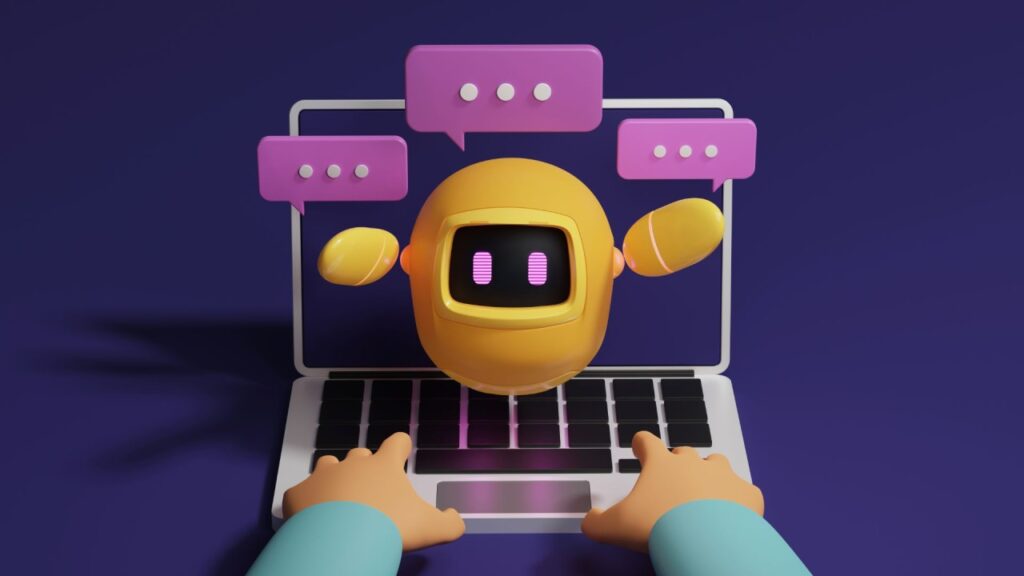In the highly competitive landscape of modern business, customer service is the linchpin that often determines success or failure.
Why Customer Service Needs a Revolution

Traditional approaches to customer service have been fraught with inefficiencies and limitations. However, Artificial Intelligence (AI) is quickly altering the landscape, making customer service more efficient, responsive, and personalized.
This comprehensive guide aims to unpack how AI technologies are not only transforming customer service but also contributing to enhanced customer satisfaction and loyalty.
The Evolution of Customer Service: A Historical Perspective
Customer service has seen tremendous changes over the years. It evolved from face-to-face interactions in brick-and-mortar stores to telephonic and email support, and more recently, to digital platforms.
The Traditional Customer Service Model
Human-Centric: Dependent on human agents, prone to fatigue and errors.
Time-Consuming: Lengthy waiting times, manual routing, and repetitive processes.
Limited Scope: Restricted by geographical and time-zone differences.
The arrival of AI is turning these limitations into opportunities, effectively ‘revolutionizing’ the customer service experience.
AI’s Entry: An Unprecedented Transformation in Customer Service
AI’s capacity to learn, adapt, and scale makes it ideal for customer service applications. You can make many business task quickly with the help of best chat gpt prompts for business
Expanding the Boundaries of What’s Possible
Omnichannel Support: AI can manage multiple platforms seamlessly.
24/7 Availability: No more ‘working hours,’ AI is always on.
Data-Driven Insights: AI can offer unprecedented analytics to understand customer behaviour.
Deep Dive: Advanced Applications of AI in Customer Service
We’ll take a closer look at the advanced applications that are taking AI in customer service to the next level.
Virtual Assistants: Beyond Chatbots
Virtual assistants are now capable of conducting conversations that are almost indistinguishable from human agents. They can understand context, manage multi-turn conversations, and even detect emotions.
Advanced Analytics for Customer Retention
AI can analyse customer interaction history to predict future behaviour, including the likelihood of churn. This allows businesses to take preventive action before losing a customer.
Automated Support Ticket Classification and Routing
Using natural language processing (NLP), AI systems can accurately classify and route support tickets, ensuring that customers get help from the most competent agents.
Pioneering Case Studies: The Practical Impact of AI in Customer Service
Seeing is believing. Let’s delve into some real-world case studies that demonstrate the utility of AI in enhancing customer service.
Case Study 1: The Retail Revolution
Many global retail chain implemented an AI system to manage online queries. This not only reduced response times but also resulted in a 20% increase in online sales.
Case Study 2: Transforming Healthcare Services
A healthcare service provider implemented a virtual assistant to handle routine queries, freeing up medical staff to focus on urgent cases. Patient satisfaction scores rose significantly.
Case Study 3: Public Sector Benefits
Even governmental customer service can benefit from AI. A city administration used AI to manage public service complaints, making the process faster and more transparent.
Ethical Implications and Challenges: Treading Carefully
As AI becomes more integrated into customer service, a host of ethical and logistical challenges arise that businesses must address.
Ethical Data Usage
Transparency in how customer data is used by AI algorithms is crucial for maintaining public trust.
Human-AI Collaboration
Training human agents to work alongside AI can be a challenge but is essential for creating a seamless customer experience.
The Future is Now: Emerging Trends in AI and Customer Service
As technology evolves, the role of AI in customer service will expand even further.
Augmented Reality Support
Imagine a customer being able to use their phone’s camera to show a problem to a virtual assistant, who can then guide them through the solution in real-time.
Blockchain for Customer Verification
Blockchain technology could add an additional layer of security in customer verification processes, reducing fraud and enhancing data integrity.
Conclusion: The Time to Act is Now
AI presents a golden opportunity for businesses to drastically improve their customer service operations.
Summarized Key Takeaways
1. AI’s role in revolutionizing customer service is undeniable, bringing about unprecedented efficiency and customization.
2. Cutting-edge applications, from advanced virtual assistants to predictive analytics, are enhancing customer interaction and satisfaction.
3. Real-world case studies highlight the myriad ways in which businesses from various sectors are benefitting from AI in customer service.
4. Ethical considerations and challenges exist but are manageable with careful planning and transparency.
If there ever was a time for businesses to invest in AI for customer service, it’s now. The technology is mature, the benefits are clear, and the risk of falling behind competitors who adopt these technologies is significant. If you need financial support for business investments, a licensed money lender near me can provide the necessary funding.
In summary, AI isn’t just the future of customer service; it’s already here, shaping how businesses and customers interact in ways that benefit both.